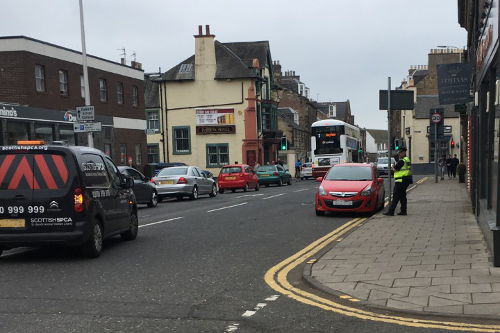Thursday June 14th 2018

Written by editor, Phil Bowen
Parking tickets with a value of over £31,000 have been issued by Midlothian’s new Parking Attendants since they started issuing tickets on 9th April this year.
This is the first year Decriminalised Parking has been in operation in Midlothian, which makes parking offences a civil matter rather than a criminal one, and enables the introduction of parking attendants to manage parking restrictions, for example, yellow lines, bus stops, disabled bays etc.
In April 266 parking tickets were issued with a potential value of £8,168.86 and in May 736 tickets were issued with a value of £22,970.56.
This equates to 19.3 tickets being issued per day with a value of £1,616.01.
The values are potential value as some of the tickets may be subject to appeal.
The new parking scheme is costing the council £200,000 per year, which covers attendants, collection of fines and the appeals process. In the council’s forecast prior to the scheme’s introduction they said they expected to make a £40,000 loss on the scheme as the number of tickets would not match the costs but saw the enforcement of parking tickets as necessary to improving congestion and helping to play a role in regenerating Midlothian’s town centres.
However, at the current rate of issuing tickets the council may well make a small surplus on the scheme, though it remains to be seen whether drivers’ parking behaviour will improve leading to less tickets being issued.
Midlothian Council’s cabinet member with responsibility for parking, Councillor John Hackett said:
“We are really pleased with the new system so far. Evidence suggests it is tackling problem parking such as cars parked on double yellow lines and in bus stops. Anecdotally, bus operators are saying it’s making life easier for passengers getting on and off the buses, especially people with a disability.
“It has also encouraged turnover of parking for shopping.
“It is way too early to project stabilised income but we do know it will be a challenge to cover costs. Indeed, if we did more than cover our costs, legally we must reinvest any surplus back into road safety initiatives.”
Tweet Share on Facebook